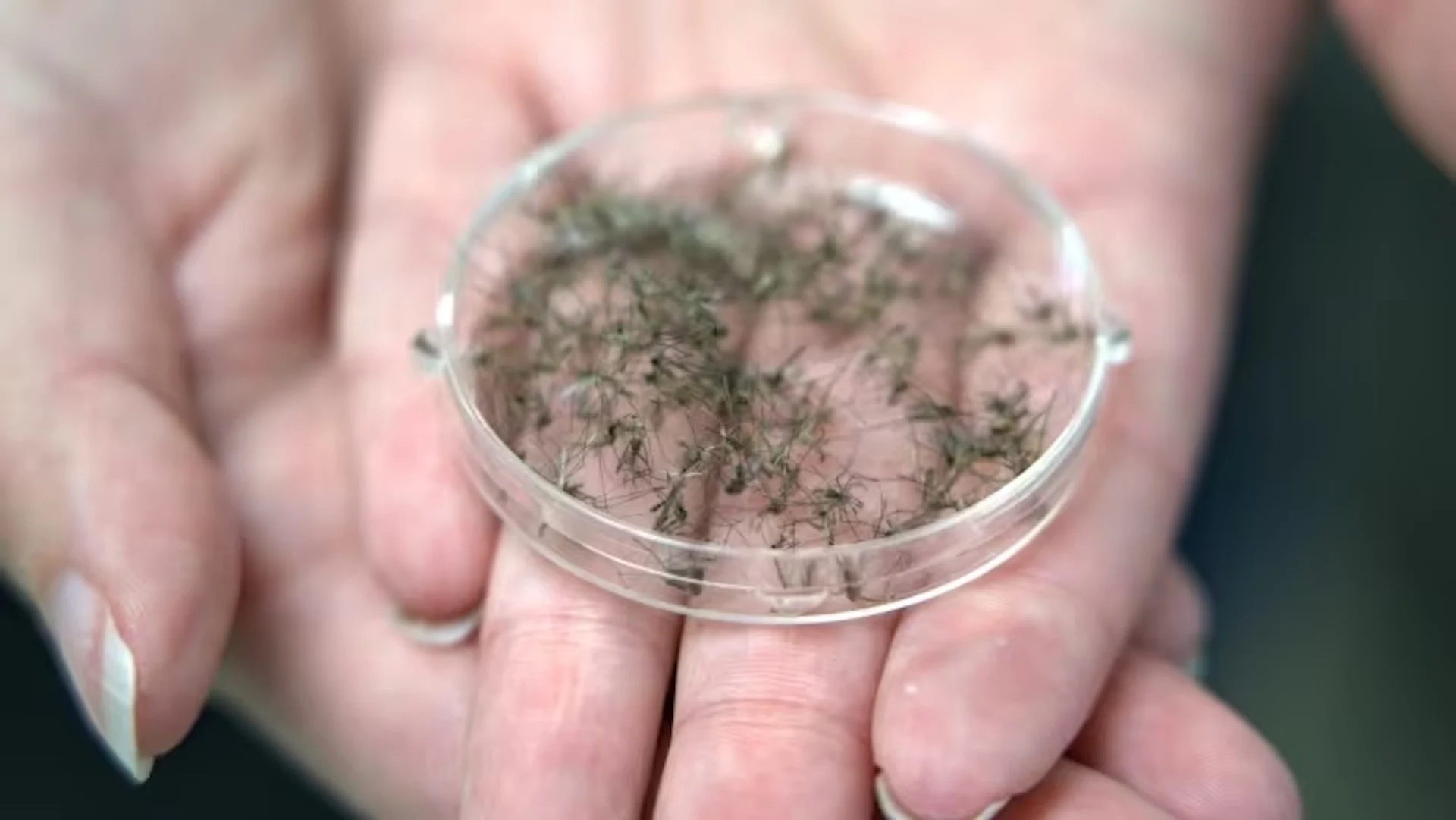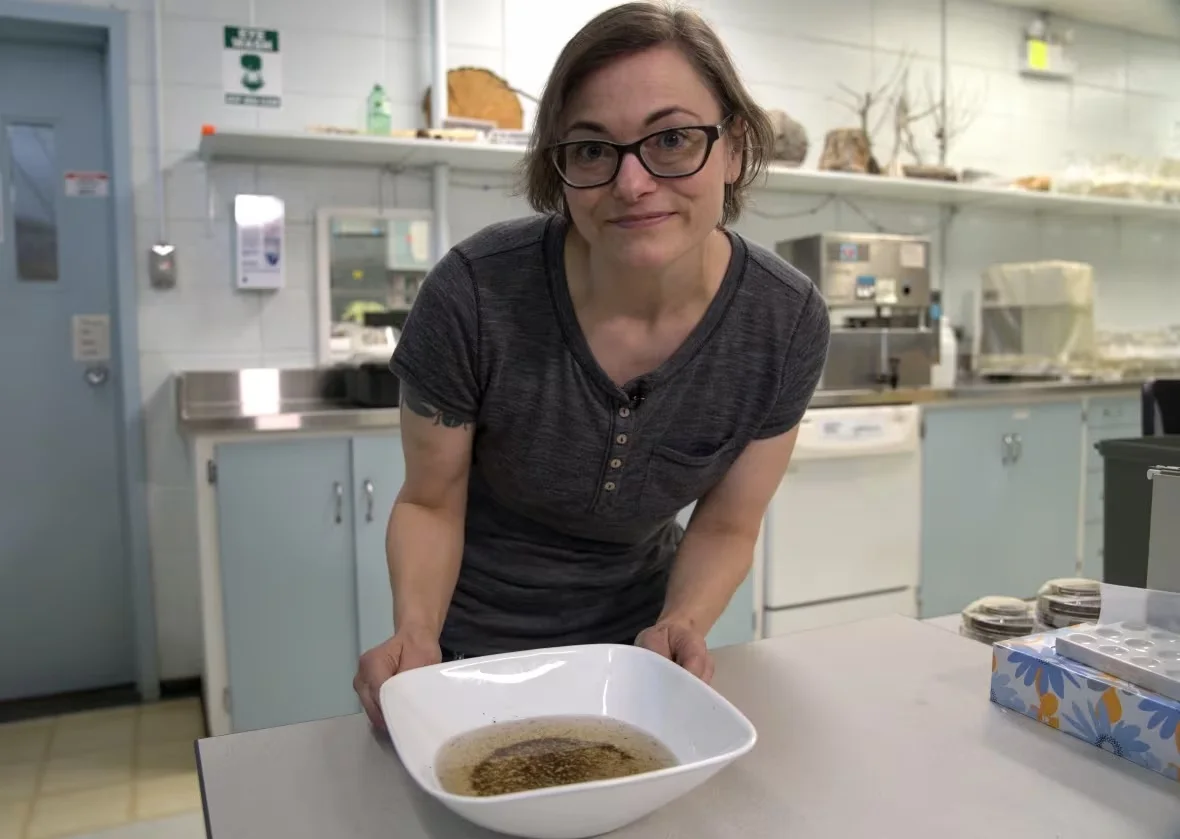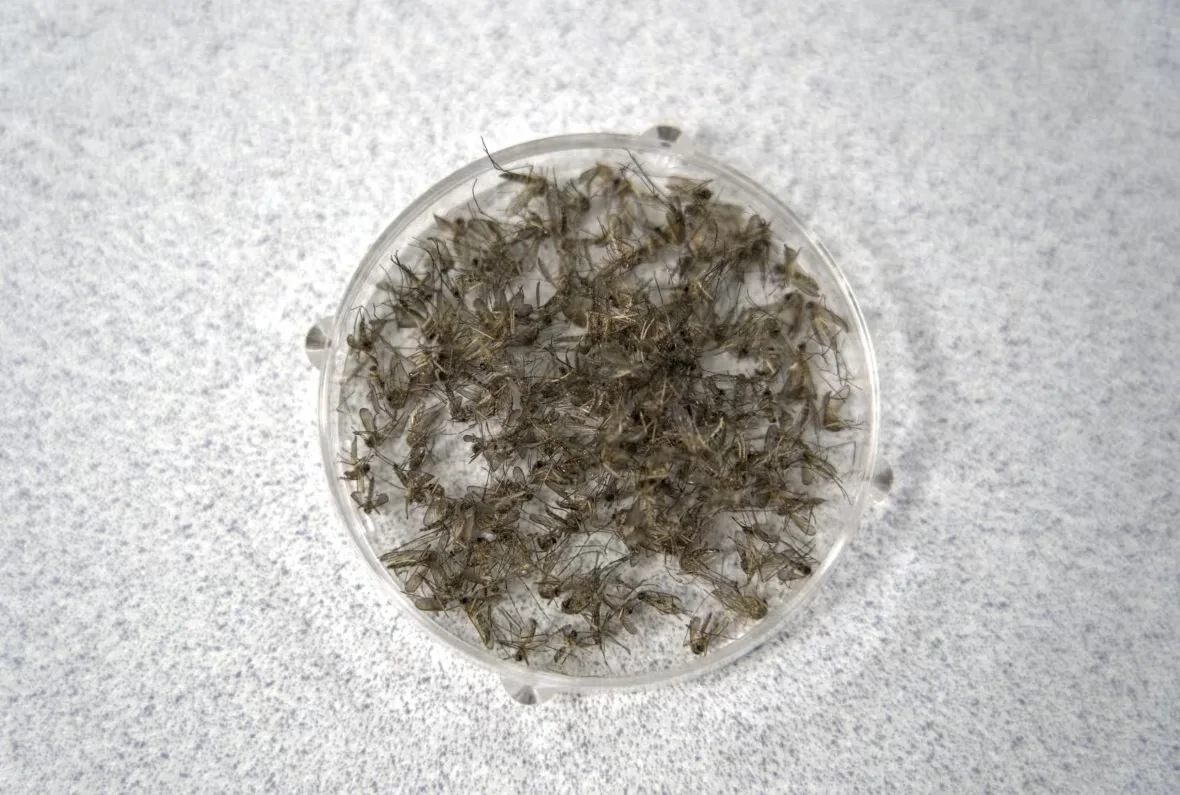
Urban mosquito is thriving farther north than ever, and scientists are worried
In an Edmonton lab, staff holding long silver tweezers pick through piles of mosquitoes. They're sorting to determine not only how bad the coming weeks will be for the summertime pests, but also to watch for a new species on the scene.
In 2019, the city's pest management program first noticed something different in the mosquitos its staff were trapping. The following year, they confirmed the presence of the Culex pipiens, also known as the common house mosquito. It's more commonly seen in Eastern Canada, where Toronto has been targeting the bug since 2003.
SEE ALSO: New study reveals why some people are mosquito magnets and others aren't
Known as an urban mosquito, it lays its eggs in standing water. Typically in the Prairies, the more common mosquito, the vexans, lays eggs in vegetation around water bodies — usually relying on large rainfalls to hatch.
Just this week, Sarah McPike, a senior biological sciences technologist with the City of Edmonton, found a flurry of the Culex pipiens larvae and pupae in just a centimetre of water at the bottom of a garbage can in her backyard.
"We've really seen it start to thrive," McPike said.

Sarah McPike, a senior biological sciences technologist with the City of Edmonton, shows the water she collected from a garbage pail containing hundreds of mosquito larvae and pupae. (Kory Siegers/CBC)
Earlier than predicted
In 2012, researchers predicted that between 2020 and 2080, Culex pipiens would be able to live in more northern climates due to both climate change and the bugs' ability to survive winter by moving indoors.
"It seems to have happened and be a little bit ahead of schedule," said McPike. "So it does seem like climate change is driving some of these new insects to arrive here."
John Soghigian, an assistant professor of Parasitology at the University of Calgary, is researching the implications of having this species make its home in Alberta. But because it is so new to this region, there are more questions than answers.
"We actually don't know exactly how Culex pipiens is surviving the winters in Alberta," said Soghigian. "We don't know enough about it."

The Culex pipiens mosquito, seen above, also known as the common house mosquito, is more commonly seen in Eastern Canada. (Supplied by City of Edmonton)
West Nile vector
Culex pipiens are known to transmit West Nile virus, a disease found in birds that can be passed onto humans and animals. It can lead to severe illness, including swelling of the brain.
Until now, the only mosquito in Alberta capable of spreading the disease was the Culex tarsalis. But it's not often found as far north as Edmonton.
The pipiens mosquitoes will lay their eggs in birdbaths, clogged gutters, even in tarps, where moisture can collect. It can take about a week for the egg to become an adult mosquito, according to the Centers for Disease Control.
Cities like Toronto have undertaken larviciding programs, targeting catch basins where the Culex pipiens will often lay their eggs. McPike said the City of Edmonton is now looking to their own program to deal with the emerging bug.

Mosquito-monitoring programs help catch emerging species in the Prairie provinces. (Kory Siegers/CBC)
The number of invasive mosquitoes moving north is growing, according to Soghigian. Aedes albopictus is another one he is concerned about.
That mosquito is known to transmit the Zika virus and Dengue fever. It's established itself as far north as Windsor, Ont.
The Culex pipiens, or urban mosquito, hasn't been found in Saskatchewan or Manitoba yet, but Soghigian believes it will continue to adapt.
"I do think that there's a growing realization that with climate change and with the number of invasive mosquitoes in Canada rising that this is going to be a problem that isn't going away and we need to start addressing it," said Soghigian.
WATCH: Mosquitoes targeting you? The reason might surprise you
Thumbnail courtesy of Kory Siegers/CBC.
The story was written by Kory Siegers and published for CBC News. It contains files from Terry Reith.